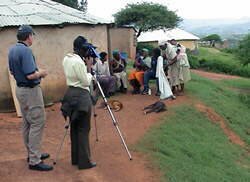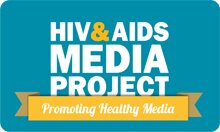Basic Principles in Covering HIV and AIDS

Franz Krüger has developed nine principles in covering HIV/AIDS. These are set to become official Southern African Editors' Forum (SAEF) policy.
1. Accuracy is critical...
...since important personal and policy decisions may be influenced by media reports. Journalists should be particularly careful to get scientific and statistical information right. Facts should be painstakingly checked, using credible sourcesto interpret information, verify facts and make statistics and science accessible and relevant to wide audiences. Sources should be named as often as possible. Stories should be written in context.
2. Misconceptions should be debunked...
...and any claims of cures or treatments should be reported with due care. Journalists should look at all stories critically.
3. Clarity means being prepared to discuss sex...
...cultural practices and other sensitive issues respectfully but openly. Care should be taken to ensure language, cultural norms and traditional practices relating to, for example, inheritance and sex are understood and accurately reported.
4. Balance means giving due weight to the story...
...and covering all aspects, including medical, social, political, economic and other issues. Balance also means highlighting positive stories where appropriate, without underplaying the fact that HIV and AIDS is a serious crisis.
5. Journalists should hold all decision makers to account ...
...in their handling of the pandemic, rom government to the pharmaceutical industry and advocacy groups. They should be engaged with, but not captive to, any interest group.
6. Journalists should ensure that the voices and images of people...
...living with and affected by HIV and AIDS are heard and seen. The human face of the pandemic should be shown. They should take care that the voices heard are diverse, and include those of women and men, vulnerable and marginalised people.
7. Journalists should respect the rights of people with HIV and AIDS.
Vulnerable people should be treated with particular care. Journalists should seek informed consent before intruding on anyone's privacy. They should seek to understand the possible consequences for individuals who participate in their report, and to ensure those individuals are clear about the consequences. Only in cases of overwhelming public interest can somebody's HIV status be reported against their wishes or should journalists hide their professional identity.
8. Particular care should be taken in dealing with children.
They experience the most extreme consequences of the epidemic, and their rights to privacy should be afforded even greater protection. They should only be identified if the public interest is overwhelming, and then only if no harm to them is foreseeable and they and any parents or guardians have given informed consent. Children have the right to participate in decisions affecting their lives. They also have the right to be heard, and journalists should ensure that the particular concerns they face are covered.
9. Discrimination, prejudice and stigma are very harmful...
...and journalists should avoid fuelling them. Particular care should be taken not to use language, or images, that reinforce stereotypes
REPORTING TIP: What is informed consent?
Some publications require that sources sign an informed consent form.






